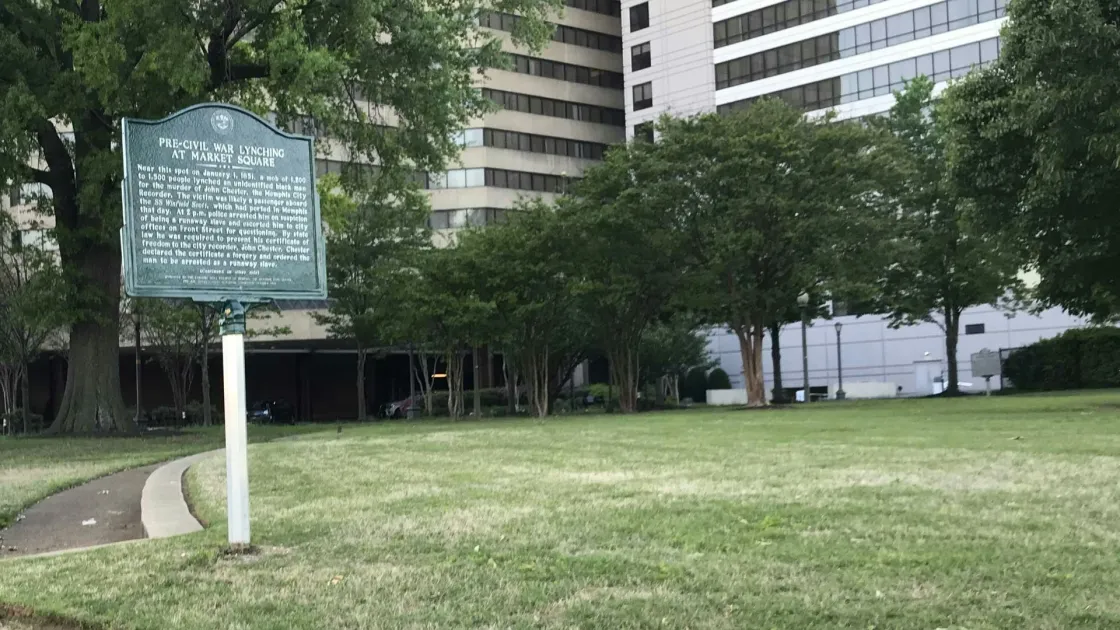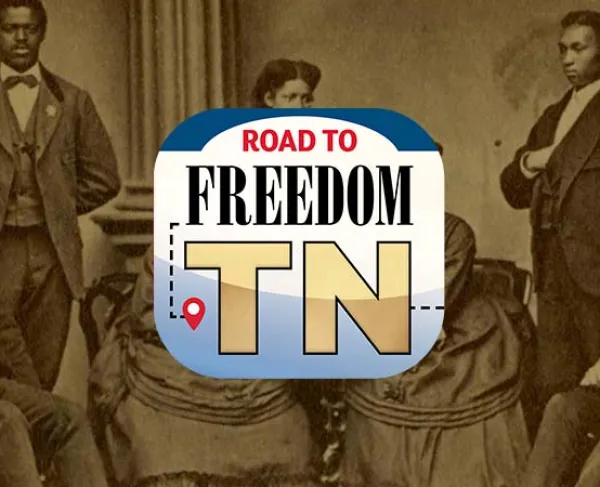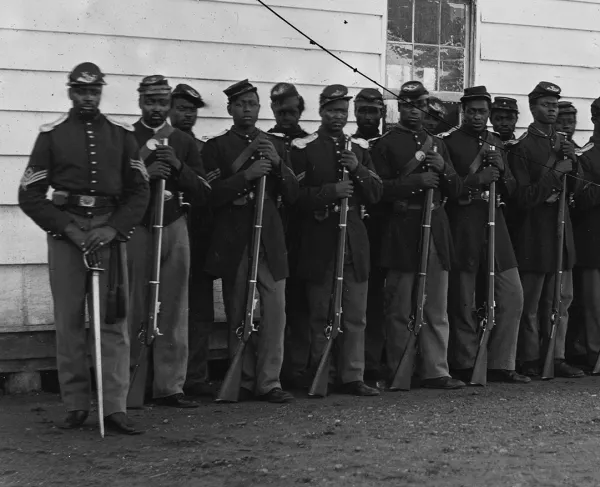Pre-Civil War Lynching at Market Square
Tennessee
245 N 2nd Street
Memphis, TN 38105
United States
This heritage site is a part of the American Battlefield Trust's Road to Freedom: Tennessee Tour Guide app, which showcases sites integral to the Black experience during the Civil War era. Download the FREE app now.

Near this spot on January 1, 1851, a mob of 1,200 to 1,500 people lynched an unidentified Black man for the murder of John Chester, according to the Memphis City Recorder.
The victim was likely a passenger aboard the SS Winfield Scott, which had ported in Memphis that day. At 2 p.m. police arrested him on suspicion of being a runaway slave and escorted him to city offices on Front Street for questioning. By state law, he was required to present his certificate of freedom to the city recorder, John Chester. Chester declared the certificate a forgery and ordered the man to be arrested as a runaway slave.
Upon hearing that his freedom was being revoked, the Black man exclaimed, "I am as free as you are," pulled out a pistol, and fatally shot Chester in the back of the head. A witness confiscated the pistol. The assailant was taken to the jail at Market Square. According to The Memphis Eagle, a mob soon formed, forced the jailer to surrender his keys, dragged the prisoner outside, and hanged him from a nearby tree. Before dying, the victim reportedly confessed he was a slave, having run away from D.L. Herron of Coffeeville, Mississippi.
This lynching is believed to be the first in Shelby County. The name of the victim was never determined.”
These words appear on an historical marker placed here in 2019 by the Lynching Sites Project of Memphis, the National Park Service and the Shelby County Historical Commission. The arrest and lynching of this unnamed Black man came just months after the passage of the Fugitive Slave Act of 1850, which increased the risks undertaken by people traveling either as free African Americans or those escaping enslavement along Underground Railroad “routes,” such as the Mississippi River.




